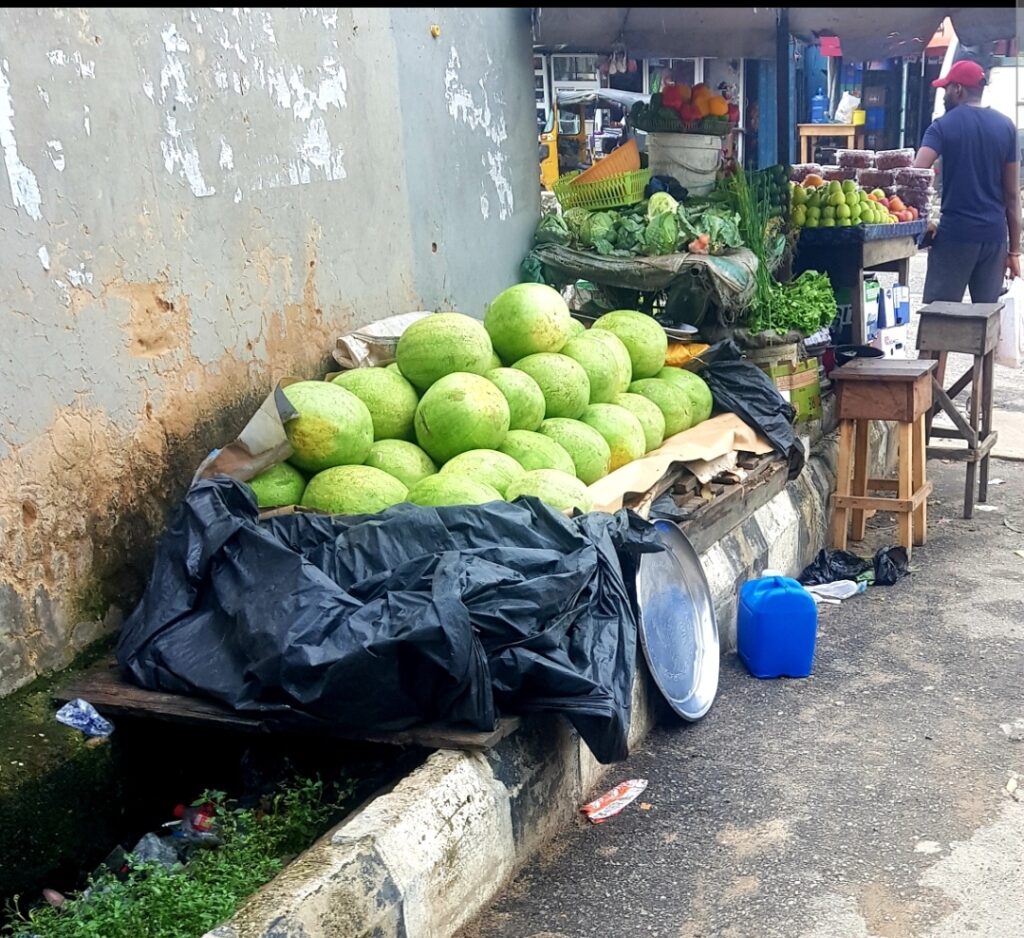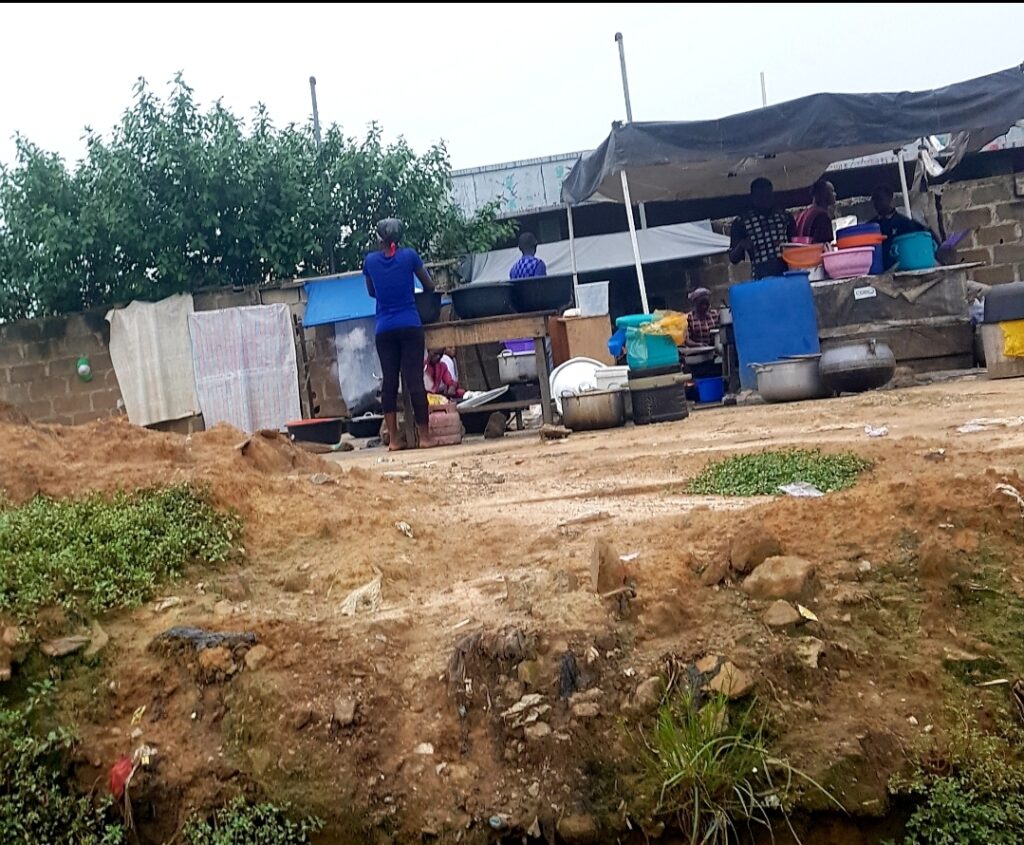Lagos Cholera Outbreak: Knowledge Gap Puts Residents at Risk
Due to the recent Cholera outbreak in Lagos, our reporter, Collins Odigie Ojiehanor, investigated the general levels of awareness and response in mitigating the spread of cholera amongst residents in Okosofe and Lagos Island. Our findings left us more disturbed.
By Collins Odigie Ojiehanor for LightRay! Ikorodu.
An alarming Cholera outbreak in Lagos state, Nigeria, has left residents in a state of heightened alert, as the outbreak has swiftly gripped not less than four local government areas of Lagos, resulting in significant concern and distress among residents.
The outbreak has affected Eti-Osa, Lagos Island, Ikorodu, and Kosofe local government areas, prompting a call for heightened vigilance in both the affected areas and other parts of the state according to reports.
Recent data indicates an increase in cholera cases across the state. The Lagos State Commissioner for Health, Professor Akin Abayomi, in a statement disclosed that the affected areas have reported around 60 hospital admissions due to severe gastroenteritis, with five deaths primarily attributed to late presentations involving extreme dehydration as of June 11, 2024.
According to report by the Nigeria Centre for Disease Control and Prevention (NCDC), from the 1st of January to the 11th of June 2024, a total of 1,141 suspected and 65 confirmed cases of cholera with 30 deaths have been reported from 96 LGAs in 30 states. The 10 states that contributed 90% to the burden of cholera include Bayelsa, Zamfara, Abia, Cross River, Bauchi, Delta, Katsina, Imo, Nasarawa, and Lagos states.
Professor Abayomi noted that in response to the outbreak, the Lagos State Government has activated a statewide heightened surveillance and response system. The Emergency Operation Centre has been activated, and the Directorate of Environmental Health, along with the Lagos State Environmental Protection Agency (LASEPA), is investigating potential sources of water contamination, particularly in the Lekki, Victoria Island axis.
“The government is committed to containing this outbreak and ensuring the safety of our residents,” stated Professor Abayomi. “We have mobilized resources and are working closely with relevant agencies to address the situation effectively” he added.
In a statement released on their X handle, @LASUTHIkeja, the management of Lagos State University Teaching Hospital (LASUTH) emphasized the institution’s readiness to handle the crisis. “This is to inform the General Public that precautionary measures have been put in place by the management of LASUTH concerning the cholera outbreak in Lagos. LASUTH is on RED ALERT, and our healthcare workers are prepared for a potential spread,” the statement read.
What to Know About Cholera
According to NCDC, Cholera is a food and water-borne disease caused by the ingestion of the organism Vibrio cholerae found in contaminated water and food. Water contamination typically occurs due to the faeces of infected individuals, which can pollute drinking water at the source, during transportation, or while stored at home.
Food may also become contaminated through soiled hands during preparation or eating. Beverages prepared with contaminated water and sold by street vendors, ice, and even commercial bottled water can transmit cholera, as well as cooked vegetables and fruits washed with untreated wastewater.

The incubation period between infection and symptom onset ranges from 2 hours to 5 days. Cholera spreads more rapidly in areas lacking adequate sanitation and regular clean water supply. Unsafe practices such as improper refuse disposal and open defecation further increase the risk of water contamination.
People most at risk include individuals of all ages in areas with limited access to clean water, residents in areas with poor sanitation and hygiene, people living in slum areas without basic water or sanitation infrastructure, those in rural regions dependent on surface water or unsafe piped or borehole water sources, consumers of potentially contaminated food or improperly washed and cooked fruits, individuals who do not practice proper hand hygiene, populations affected by floods or other disasters resulting in overcrowded living conditions, relatives caring for cholera patients at home, and healthcare workers providing direct patient care without standard precautions.
Symptoms of cholera include acute, profuse, painless watery diarrhea (resembling rice water stools) that begins suddenly, often accompanied by vomiting, nausea, and fever. Severe cases can lead to death within hours due to massive body fluid loss and dehydration. However, around 80% of infected individuals may exhibit mild symptoms or have no symptoms at all.
Despite Recorded Cases, Many Residents Still Ignorant of Outbreak
As the disease spreads rapidly through several parts of Lagos, claiming lives and hospitalizing dozens, a significant portion of the population remains uninformed. In the streets of Ikorodu and Kosofe, life goes on as usual for many vendors and residents.
Stella Adeoye, a street food vendor, shared her ignorance about the outbreak. “I haven’t heard anything about cholera,” she said. “I sell my food here every day, and no one has mentioned it. How am I supposed to protect myself if I don’t know what’s happening?”

Similarly, Musa Ibrahim, a fruit seller in Kosofe, expressed a lack of awareness. “I wash my fruits with the same water we all use here,” he explained. “I didn’t know the water could be contaminated. No one told us about this cholera outbreak.”
Beverage sellers, who are at high risk due to the nature of their products, also seemed unaware. Halima Yusuf, who sells homemade Zobo (Hibiscus tea) drinks, was shocked to learn about the potential danger. “I don’t know anything about cholera in Lagos. I make my drinks with water from the borehole,” she said. “I didn’t know it could be unsafe.”
Residents in the affected areas also expressed frustration over the lack of information. Esther Udom, a resident of Ikorodu, lamented the situation. “It’s scary to think that people are dying from cholera, and we didn’t even know it was spreading here. There needs to be more awareness and better communication from the authorities aside from using social media because many of this people handling food and other items at different point, especially in the market do not use social media.”
Residents Faced With Uncertainty
The cholera outbreak has sparked a range of reactions, with residents apprehensive about their safety. “The situation is dire,” said Mr. Paul, a resident of Kosofe local government area. “People that are aware are scared because anybody can be affected. We need more support and information on how to protect ourselves,” he added.
On Lagos Island, the atmosphere is equally tense. Many residents are taking extra precautions, while others are still in the dark about the severity of the outbreak. Mrs. Adebayo, a food vendor, expressed her concerns. “I heard about cholera from a neighbor,” she said. “Customers are also worried and ask me if the food is safe. I pray the government would send people to educate residents properly.”
Mrs. Agbaje, a fruit seller, shared a similar sentiment. “I use clean water to wash my fruits, but now I’m worried it might not be enough,” she explained. “I don’t want my customers to get sick and feel it’s because of my products. More awareness is needed at this time, so people can have clear guidelines on how to stay safe.”
Residents in the affected areas are feeling the impact on their daily lives. Mrs. Taiwo, a mother of three living on Lagos Island, voiced her fears. “I’m scared for my children,” she said. “I’ve stopped letting them buy food outside, but it’s hard to control everything they eat and drink.”





Comments